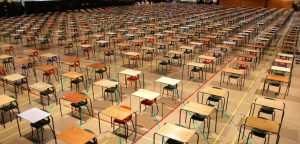Islamabad, Sep 24: These five IPPs are grouped together because they are essentially displacing zero electricity. The technical staff suggests canceling these IPPs without receiving any payment.
The authorities began with a severe option: waive the contractual payment upon early termination and disregard the receivables. Furthermore, they should be concerned about any liabilities they may have, not the government.
You are correct on one point. These IPPs should be terminated because they are rarely used and are close to the end of their contracts. But the termination shouldn’t be unilateral, meaning that the IPPs shouldn’t be compelled to end without receiving any compensation. Paying the full sum is not the best option. There ought to be a compromise. Instead of being combative, the negotiation should be friendly. There can be unforeseen effects because the signaling is incorrect.
“This type of discussion will lead us back to 1974, when Bhutto carried out the nationalization,” a dissatisfied IPP owner with a wide range of companies in Pakistan remarked. “The main issue is that 2015 seems to be something the government is ignoring,” he said. He put it up well: “They can negotiate by demonstrating respect; we have a presence in numerous industries, and it’s in our collective interest to negotiate for the benefit of the nation.”
The owners of IPP, however, felt a little agitated. According to one view, the technical team and the powerful circles handle distinct IPPs in different ways and this variance in behavior is influenced by both the perceived repute of the individual owners and the merits of the IPPs. The government ought to carry out a forensic audit and penalize individuals who have gradually pilfered fuel and overcharged for IPPs.
But in the end, the choice comes down to the contracts and the need for these power plants. Not every IPP that is being negotiated has the same size and structure. Among the five, the largest independent power producer (IPP) is undoubtedly the leading power sector business. It was among the first to form an IPP in Pakistan and has made investments in CPEC projects.
The corporation has given assurances to the lenders of more recent IPPs by using the future cashflows of the IPP that is now negotiated. It can be detrimental to the company’s other projects if it doesn’t get any money from that IPP. It’s comparable to a house of cards that has the potential to bring down the entire electricity industry.
The technical person needs to be aware of these subtleties. According to reports, the technical team feels that they ought to go through criminal processes. That remark has no legal standing, so it could only be used as a coercive tactic. These cashflows were provided without cost to the government, and any business can use them for upcoming initiatives.
It seems to some participants that some members of the technical team are trying to win over influential people. They are also missing the wider picture in the process.The fact is that in 1994, the capacity payment for the Sahiwal plant which utilizes just imported coal was greater than the total for all of the IPPs put together.
These IPPs are owned by significant investors. They are creating new ventures and may be able to draw in international investors in the future. Refrain from pushing them too far, as this can further divide the private industry as a whole. Sustainable economic growth is impossible without private investment. IPP talks are primarily focused on lowering the energy tariff to promote growth. Preserve the golden eggs by not killing the hen.









